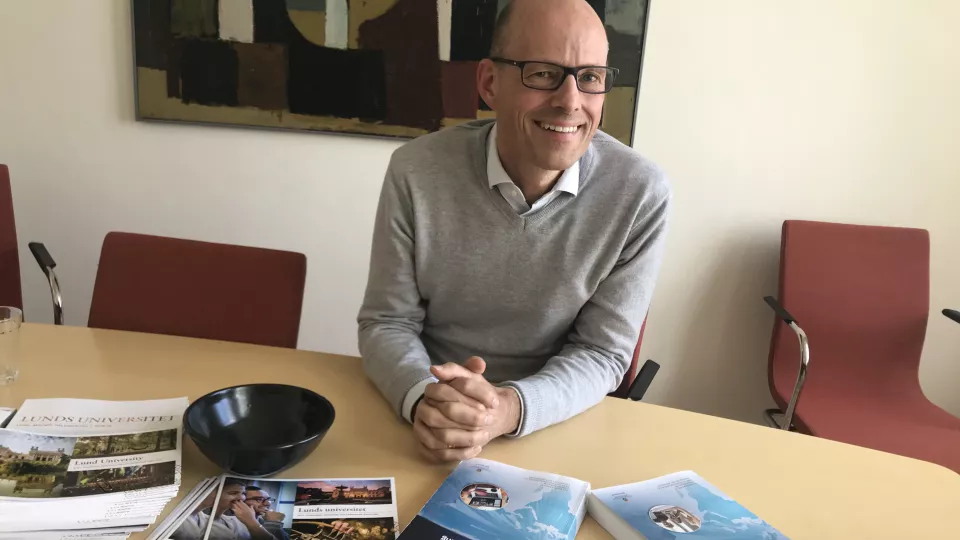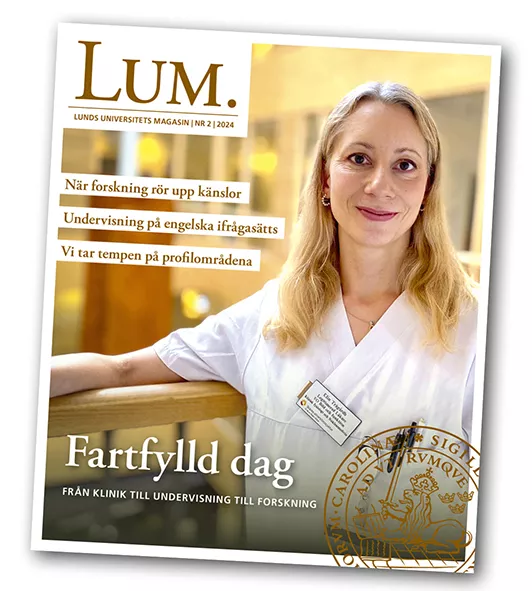The long processing times at the Swedish Migration Agency have been a long-term problem, complicating arrangements for international students, doctoral students and visiting research fellows. In some cases, students have not arrived at LU in time and are then not permitted to travel outside Sweden for study visits or placements. Researchers who cannot travel due to delays in residence permit renewals have been unable to go home for vacations or to visit parents who are ill.
LU in a pilot project with the Migration Agency
“The report contains many good proposals. Speeding up the migration process is a very important issue”, says international officer Pär Svensson, who adds that LU is running a pilot project with four other HEIs and the Migration Agency concerning the viability of residence permits that are valid for a number of years. LU has also employed a specialist administrator, Louise Corrigan, who previously worked at the Migration Agency, to help people who run into difficulties.
This proposal means that students studying for a Master’s will hopefully be able to apply for a residence permit for the entire period of study, instead of one year at a time, as is the case at present.
“The current practice is that you must apply for residence permit renewal in your home country and in certain cases this leads to students, doctoral students and visiting research fellows being forced to leave Sweden for several months in the middle of their studies or ongoing duties.”
The University is mostly positive to the inquiry's proposal
For the most part, the University is positive about the inquiry’s proposal, which is clear from LU’s consultation response, although it is pointed out that money needs to be allocated to higher education in order to implement certain proposals. Regarding scholarships for international students, a national pot of SEK 20 million is proposed to fund an increase in the number of people who can afford to come here.
The number of scholarships should increase
The University is also positive towards proposals to increase the number of scholarships for incoming fee-paying students. However, LU considers that scholarships are also necessary for international exchange students. According to Pär Svensson, who works a lot with African countries, it is not uncommon that exchange students cannot afford to come to Sweden even though they would receive free tuition. However, in the new national initiative on scholarships, there is also a proposal to allow people to apply for funds to pay for accommodation, for example.
“It would be good if more money is allocated to scholarships and that there are options for covering living costs – it means that more students can go on their exchange semester. In return, this increases our students’ opportunities to travel abroad.”
More Swedish students should travel abroad
The aim is for the percentage of Swedish students travelling abroad for one semester to increase from approximately 20% to 25%.
“If that is the case, more of our programmes need to build in options to study abroad – so-called mobility windows”, says Pär Svensson.
One aspect of the report criticised by the University is the proposal that tuition fees should go to joint marketing for higher education institutions in order to make Sweden more attractive as a knowledge nation.
“The students pay to study at one HEI. It would seem odd if their tuition fees fund the activities of other HEIs”, concludes Pär Svensson.



